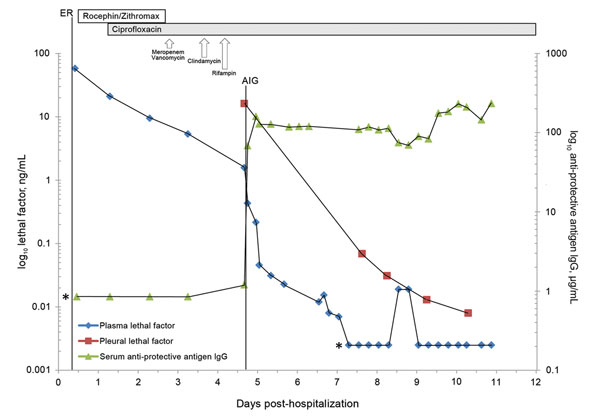Volume 20, Number 2—February 2014
Dispatch
Lethal Factor and Anti-Protective Antigen IgG Levels Associated with Inhalation Anthrax, Minnesota, USA
Figure 2

Figure 2. . Plasma and pleural fluid lethal factor levels and anti-protective antigen IgG (AIG) levels for a patient from the time of examination in the community hospital emergency department to discharge from the tertiary referral center. Asterisks indicate that anti-protective AIG levels obtained before anthrax immune globulin administration were below the lower limit of quantification. The vertical dashed line represents the time of anthrax immunoglobulin administration. The patient’s initial plasma lethal factor level was 58.0 ng/mL and declined to 1.5 ng/mL before AIG administration. Pleural fluid LF was 16.2 ng/mL at initial drainage and declined steadily.
Page created: January 17, 2014
Page updated: January 17, 2014
Page reviewed: January 17, 2014
The conclusions, findings, and opinions expressed by authors contributing to this journal do not necessarily reflect the official position of the U.S. Department of Health and Human Services, the Public Health Service, the Centers for Disease Control and Prevention, or the authors' affiliated institutions. Use of trade names is for identification only and does not imply endorsement by any of the groups named above.